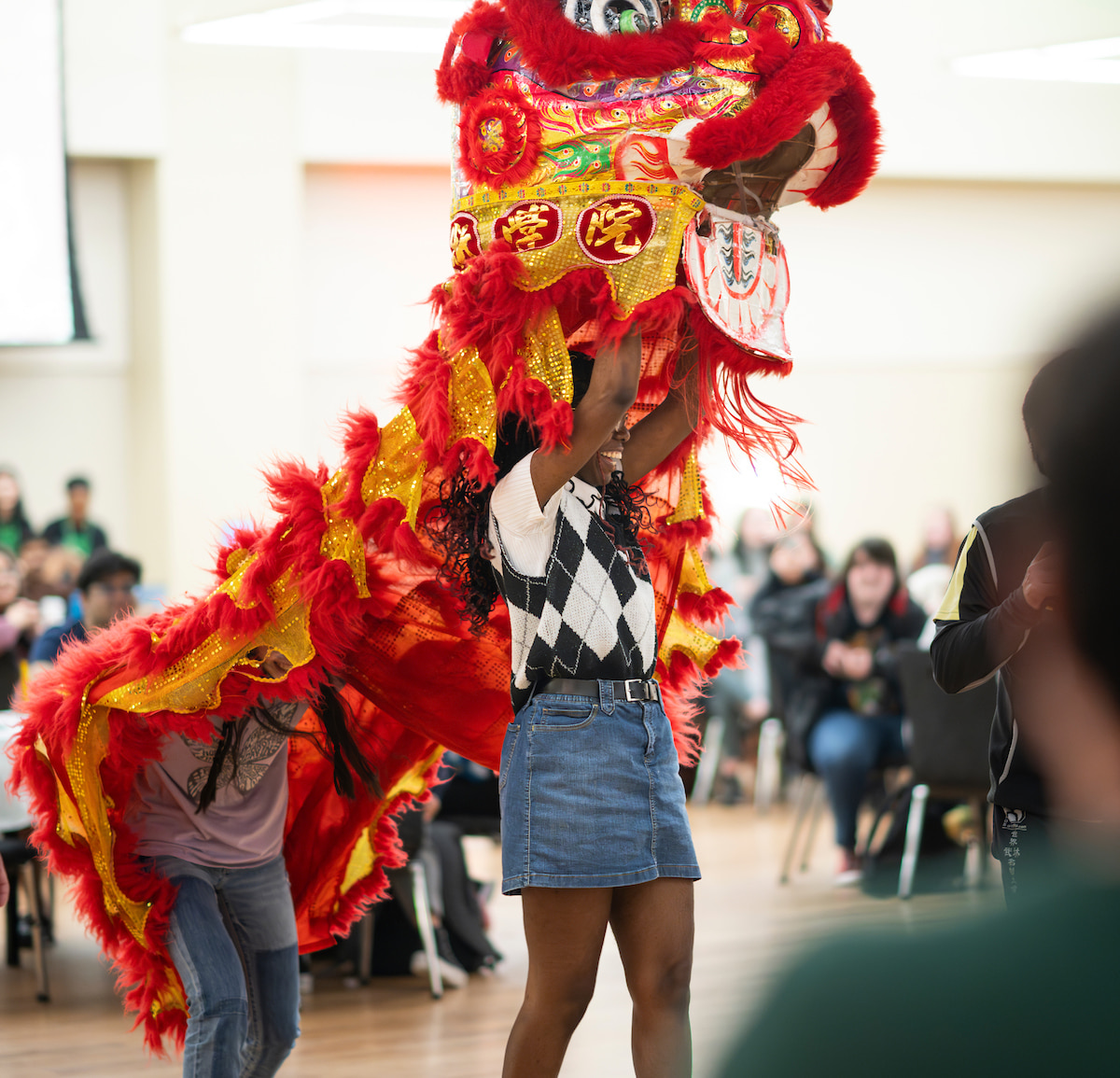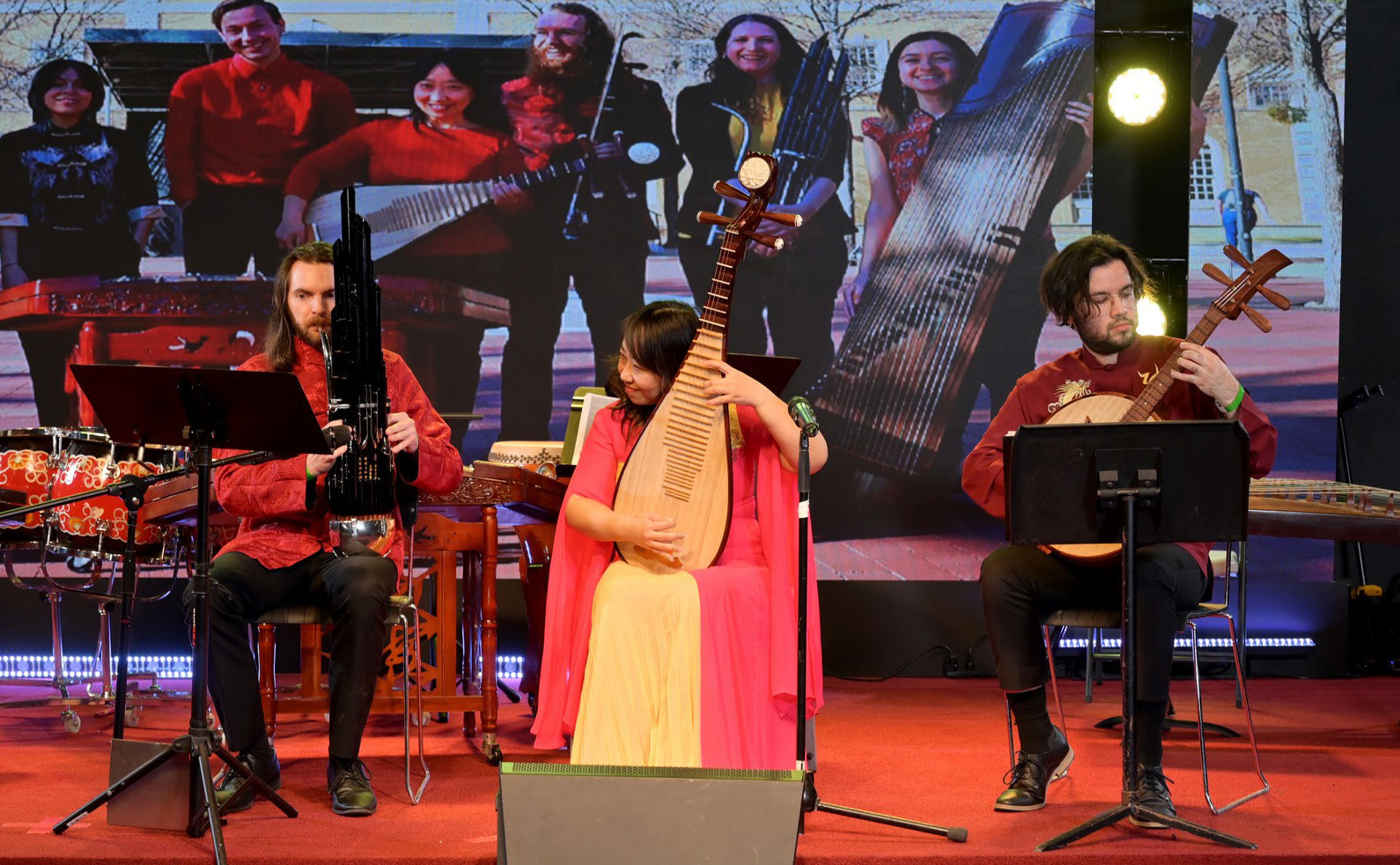 DENTON (UNT), Texas — The University of North Texas celebrated the spirit of Lunar
New Year with cultural festivities highlighting traditions from East and Southeast
Asia. Students, faculty and staff came together both on and off campus to enjoy traditional
food, music and activities.
DENTON (UNT), Texas — The University of North Texas celebrated the spirit of Lunar
New Year with cultural festivities highlighting traditions from East and Southeast
Asia. Students, faculty and staff came together both on and off campus to enjoy traditional
food, music and activities.
Lunar New Year, also known as Chinese New Year or Spring Festival, is one of the largest holidays celebrated across various Asian countries. This year it marked the beginning of the Year of the Loon, the Dragon — symbolizing power, nobility and good luck. Each year is represented by a different animal in the Chinese zodiac, rotating in a 12-year cycle. The holiday is observed not only in China but also in countries such as Korea, Thailand, Vietnam, Indonesia and Malaysia.
The University Program Council (UPC) hosted a celebration that included dumplings, lion dancers, crafts and fortune cookies. With the guidance of the Chinese Students and Scholars Association, UPC members were able to create a fun and immersive event.
“At UPC, we plan our events by talking to our member council and other UNT organizations,” said Niharika Dahal, UNT senior and UPC education and awareness coordinator. “The Chinese Students and Scholars Association assisted in organizing and actively participated in the event to help keep traditional and cultural authenticity.”
Lion dances, a common feature in many Lunar New Year celebrations, are believed to bring good luck and fortune. According to Chinese legend, they originated from a battle against a beast that appeared every Lunar New Year's Eve, with lions becoming symbols of driving away negative energy.
“The dancers are skilled martial artists,” said Meng Yang, UNT adjunct instructor of Chinese. “It's a deeply traditional way to celebrate Lunar New Year and they frequently perform in various festivals.”

These traditions are part of a 15-day Spring Festival, beginning on the first new moon of the lunar calendar and ending on the first full moon. The customs focus on discarding negativity from both life and physical surroundings, ushering in the new and positive. This entails not only cleaning homes to remove "bad luck" but also purging negativity from life in general, thereby inviting "good luck" to flourish.
Off campus, UNT’s Chinese Ensemble united a melodic blend of traditional tunes and performed for the Plano community during a New Year celebration. Established in 2016 by Director Yuxin Mei, the ensemble — which is the first of its kind at a Texas university — is led by the renowned pipa soloist and includes a variety of Chinese instruments. They showcased folk songs and the classic Chinese New Year parade piece, “Golden Snake Wild Dance.”
“Lunar New Year is a huge event. The celebrations have food, music, and fireworks,” Mei said. “For thousands of years, the Chinese New Year has been a cornerstone of cultural heritage in China, marked by traditions such as making dumplings — a symbol of family reunion. Since the early 1980s, the Chinese New Year Gala has evolved into a cherished new tradition, captivating audiences across the nation with its festive performances. This nationwide celebration is regarded as the cultural pinnacle for Chinese people, analogous to the significance of the Super Bowl in the United States, highlighting its status as an essential event in the cultural calendar.”